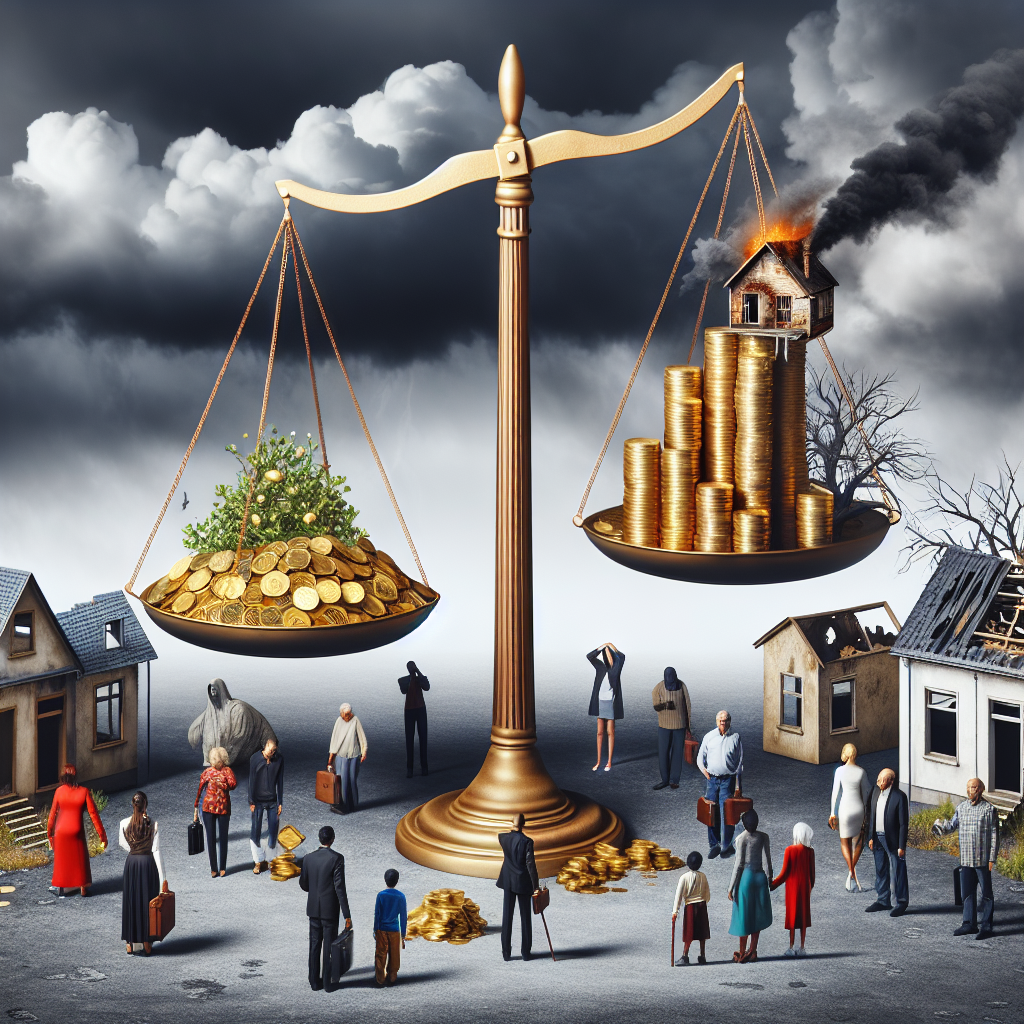Political corruption can have severe implications on society, leading to detrimental effects on various aspects of life. From economic instability to social inequality, the consequences of political corruption can be far-reaching and long-lasting. In this article, we will explore the effects of political corruption on society and delve into how it impacts individuals, communities, and nations.
Effects of Political Corruption on Society
1. Economic Damage: One of the most significant effects of political corruption on society is the economic damage it can cause. When politicians engage in corrupt practices such as embezzlement, bribery, or favoritism, it can lead to misallocation of resources, reduced economic growth, and increased poverty. Corruption undermines competition, stifles innovation, and discourages investment, ultimately hindering economic development and prosperity.
2. Inequality: Political corruption often exacerbates social inequality by diverting public resources away from those who need them the most. When politicians prioritize the interests of the wealthy and powerful over the needs of the marginalized and vulnerable, it perpetuates a cycle of poverty and oppression. Corruption can also worsen disparities in access to healthcare, education, and other essential services, further widening the gap between the rich and the poor.
3. Lack of Accountability: Political corruption erodes trust in government institutions and undermines the rule of law. When corrupt politicians evade punishment for their actions, it sends a message that accountability does not apply to the powerful and influential. This lack of accountability can breed a culture of impunity, where corruption becomes normalized and accepted as part of the political system. As a result, citizens may become disengaged from the political process, leading to apathy and disillusionment.
4. Social Instability: Political corruption can fuel social unrest and instability, as citizens become increasingly frustrated with a government that fails to serve their interests. When public officials are perceived as self-serving and corrupt, it can erode the legitimacy of the state and create a breeding ground for dissent and protest. In extreme cases, political corruption can even contribute to political violence and conflict, as different factions vie for power and resources.
5. Loss of Public Trust: Political corruption undermines public trust in government institutions and erodes the social fabric of society. When citizens believe that their leaders are corrupt and untrustworthy, it can lead to a loss of faith in democracy and the rule of law. This lack of trust can have far-reaching consequences, as citizens may be less willing to participate in civic activities, obey the law, or support government policies.
Frequently Asked Questions
Q: What are the main causes of political corruption?
A: Political corruption can be caused by a variety of factors, including greed, lack of transparency, weak rule of law, and inadequate oversight mechanisms. In many cases, the desire for personal gain and power motivates politicians to engage in corrupt practices.
Q: How can political corruption be combated?
A: Combatting political corruption requires a multi-faceted approach that includes strengthening institutions, promoting transparency, empowering civil society, and holding corrupt officials accountable. Additionally, promoting good governance practices, such as ethical leadership and anti-corruption measures, can help prevent and mitigate the impacts of corruption.
Q: What role can citizens play in combating political corruption?
A: Citizens play a crucial role in combating political corruption by holding their leaders accountable, advocating for transparency and accountability, and participating in civic activities. By being informed and engaged citizens, individuals can help promote good governance and prevent corruption from taking hold.
Q: What are the long-term effects of political corruption on society?
A: The long-term effects of political corruption on society can be profound, leading to weakened institutions, erosion of trust, economic stagnation, and social inequality. Over time, corruption can undermine democratic principles, hinder development, and create a culture of impunity that is difficult to reverse.
In conclusion, the effects of political corruption on society are wide-ranging and detrimental, impacting individuals, communities, and nations in various ways. By understanding the causes and consequences of corruption, and taking proactive measures to combat it, we can work towards building a more just, equitable, and prosperous society for all.
